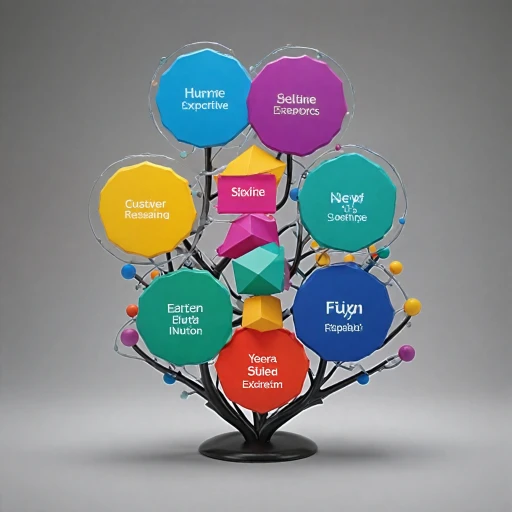
The Role of AI in HR Decision-Making
The Integration of Artificial Intelligence in Human Resources Management
Artificial intelligence (AI) is playing an increasingly pivotal role in the decision-making processes within human resources (HR). As companies seek more efficient and objective methods to manage their workforce, AI is becoming an invaluable tool. However, this integration must be balanced with legal and ethical considerations, particularly when it comes to meeting adverse action notice requirements. AI systems in HR are used to analyze vast amounts of data, including consumer reports and credit scores, which help in identifying key factors for candidate selection. For instance, during a background check, AI can provide insights into a candidate’s existing credit status and consumer financial behavior, offering specific reasons employers might take an action based on this data. It's crucial, however, to ensure that automated processes align with compliance standards outlined by regulations such as the Fair Credit Reporting Act (FCRA). This regulation emphasizes the need for clear adverse action notices when an application is influenced by credit information or a consumer report. Employers must understand their obligations to ensure that AI-driven decisions do not compromise the rights of applicants or employees. For organizations, adherence to these standards isn't just about compliance; it's about fostering trust and transparency with candidates and employees. By understanding the reasons adverse actions are taken, employers can not only safeguard themselves legally but also maintain a fair and informed approach to workforce management. For more insights into maintaining ethical and legal HR practices with AI, you can explore this guide on religious accommodation in the workplace. This can provide practical examples which parallel the consideration required in adverse action notice scenarios.What Are Adverse Action Notice Requirements?
Understanding Adverse Action Notices in HR
Adverse action notices are a critical component in the realm of human resources, especially when artificial intelligence (AI) is involved in decision-making processes. These notices are essentially formal communications that inform an applicant or candidate that a negative decision has been made regarding their application or employment status. This could be due to various factors such as a credit score, consumer report, or background check results.
In the context of HR, adverse action notices are often required when a decision is influenced by information obtained from a consumer report. This is where the Fair Credit Reporting Act (FCRA) comes into play, setting the framework for compliance. The FCRA mandates that employers provide specific reasons for the adverse action, ensuring transparency and fairness in the hiring process.
Key Requirements for Compliance
To comply with adverse action notice requirements, employers must follow a structured process:
- Pre-Adverse Action Notice: Before taking any adverse action, employers must provide the candidate with a pre-adverse action notice. This includes a copy of the consumer report and a summary of their rights under the FCRA.
- Waiting Period: After the pre-adverse action notice, a reasonable period must be allowed for the candidate to respond or dispute the information.
- Final Adverse Action Notice: If the decision remains unchanged, a final adverse action notice must be sent. This notice should include the principal reason for the decision and information about the consumer reporting agency.
These steps are essential to ensure that candidates are treated fairly and have the opportunity to address any inaccuracies in their reports. For more practical examples of how these notices are implemented, you can explore understanding religious accommodation in the workplace.
Adhering to these requirements not only fulfills legal obligations but also builds trust with candidates, reinforcing the integrity of the hiring process.
AI's Impact on Compliance with Adverse Action Notices
Balancing Artificial Intelligence with Legal Obligations in HR
Artificial Intelligence (AI) is reshaping the landscape of human resources, yet its profound implications on compliance with adverse action notices cannot be overlooked. The introduction of AI systems in HR processes, from hiring to performance evaluations, introduces complexities requiring organizations to adapt rapidly to meet legal standards. Most notably, the Fair Credit Reporting Act (FCRA) sets forth stringent requirements for adverse action notices.
AI in HR employs sophisticated algorithms to analyze a wealth of data, including credit scores, background checks, and consumer reports. When determining the eligibility of an applicant, AI systems often deliver decisions that can result in adverse actions, such as denying an application. In these circumstances, the FCRA and other regulations mandate specific steps to ensure consumer protection, including notifying candidates of adverse actions and the principal reasons for these decisions.
For HR professionals, maintaining compliance involves more than just understanding these requirements; it involves integrating AI systems that align with existing legal frameworks. Implementing AI responsibly calls for a rigorous approach to compliance, including issuing pre-adverse action notices and providing applicants with actionable insight into the particular reasons behind a decision.
Furthermore, AI systems possess the ability to generate insights from consumer financial data, necessitating a comprehensive approach to compliance monitoring. When adverse action is taken, organizations are obligated to give clear, concise reasons for the decision, ensuring transparency and fairness in the process.
To successfully integrate AI while adhering to legal obligations, companies must invest in systems that support compliance, such as tools capable of providing actionable feedback on completed applications and employing appropriate machine learning models. Addressing these compliance challenges is critical not only for meeting regulatory requirements but also for fostering trust with candidates and maintaining an ethical stance in workforce management.
Integrating AI responsibly and complying with legal standards can drive innovation in HR practice, delivering insights that enable improved decision-making while respecting applicants' rights and safeguarding consumer interests. Discover the essentials of enhancing workforce management with position control in AI to further optimize these processes.
Best Practices for Implementing AI in HR While Meeting Legal Obligations
Implementing AI in HR with Legal Obligations in Mind
Navigating the integration of artificial intelligence into human resources while adhering to adverse action notice requirements can be a daunting task. However, it's essential for businesses aiming to leverage AI effectively without falling afoul of regulations such as the FCRA. Below are some best practices to help companies maintain compliance while utilizing AI in HR decision-making processes.- Familiarize Yourself with Applicable Regulations: Understanding legal requirements, such as the Fair Credit Reporting Act (FCRA), is crucial when using AI for HR decisions. AI systems must be designed to comply with laws governing consumer reporting and adverse actions. This includes providing applicants with specific reasons for adverse actions, ensuring transparency.
- Develop Clear Policies and Procedures: Establishing policies that outline how AI is used in HR can clarify the roles of AI systems. These policies should ensure accountability and detail the process for issuing adverse action notices when needed. This can help mitigate potential legal risks associated with automated decision-making.
- Ensure Explainability of AI Systems: One of the key factors in complying with adverse action notice requirements is the ability to provide candidates with reasons behind decisions, including credit scores, consumer reports, or background checks. AI systems should be transparent enough to explain the principal reasons for decisions made based on these data points.
- Regularly Review and Audit AI Systems: To maintain compliance, regularly auditing AI systems is vital. This includes evaluating the outcomes of AI-driven decisions and ensuring that they align with HR policies and legal standards. Audits can help in identifying any biases or discrepancies in decision-making processes.
- Training and Education: Providing training for HR personnel on adverse action notice requirements and AI system operations is essential. Understanding how AI affects HR decisions, like employment applications or consumer financial checks, ensures that employees can properly manage these tools and provide the necessary information to candidates or creditors when adverse actions are taken.













